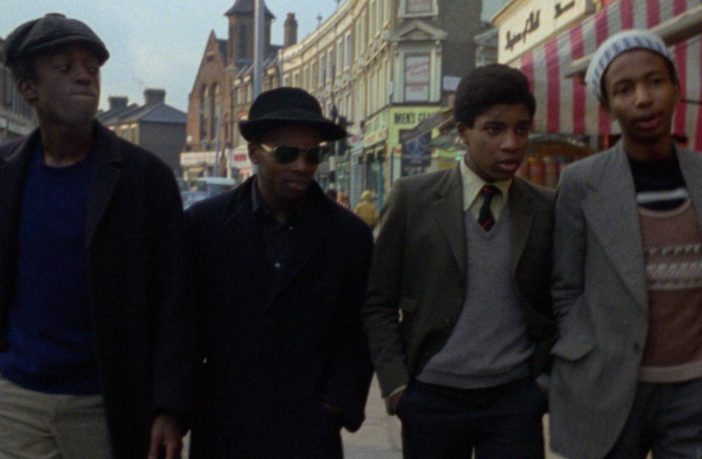Trailer: https://youtu.be/Y6n8055O878?si=8lUsWGOZB37-NXxh
The new version of the 1976 film Pressure, opening at BAM’s Rose Cinemas on May 10, isn’t a former dusty artifact unearthed from the archives to capitalize on nostalgia’s money machine. Presented in 4K but not stripped of its 70s-era aesthetic effects, this film is beautiful in frame and buoyant in meaning. Racism, immigration, joblessness, police brutality, and protest fuel Horace Ové’s landmark 1976 film — making this restoration not only relevant but also a revelation. Pressure, the first full-length Black British film, is a powerful reminder of the importance and necessity of innovation and creativity in cinema.
Ové doesn’t hold back. The director immediately shoves you into the life of Tony, a young Black man caught between two cultures. The film opens with his mother preparing him breakfast before he leaves for what we soon learn will be his 10th or so job interview since graduation.
The opening scene is drenched in the danger and decor of a universal Blackness: the frying pan crackles with grease from the bacon and eggs the preppy and proper UK-born Tony quickly devours while his brother, a leader in the Black Power movement, simultaneously eats an avocado, and weaponizes the fruit’s origin story to lambast Tony for partaking of the white man’s food.
“You must eat Black food,” Colin insists to Tony, who is genuinely confused. You feel the sting of racism but also the complexities of being Black in the Black community. Colin preaches of acquiring power, but Tony only wants to assume his place in the world.
Pressure’s themes seem ripped from today’s headlines. The directing is raw and handheld, like a documentary. The streets of London pulsate with the soundtrack, transporting you right into the story’s heart. This isn’t a romanticized city; Ové captures rage, resilience, sexuality, and style.
Pressure is a document of a specific time but speaks to us across generations. If you’re interested in representation, social history, or just damn good filmmaking, don’t miss this chance to see a true landmark on the big screen.



